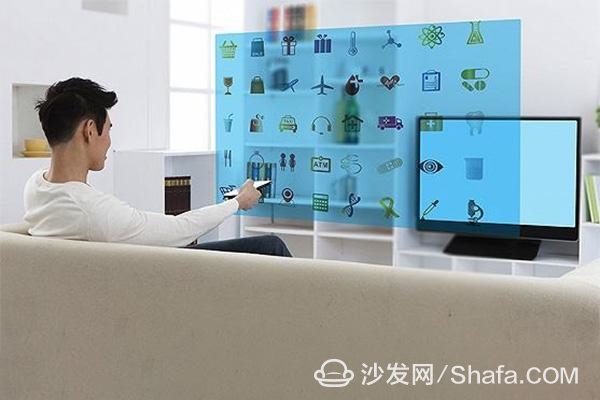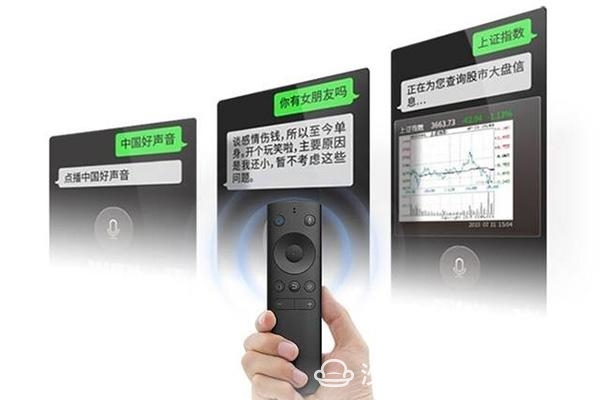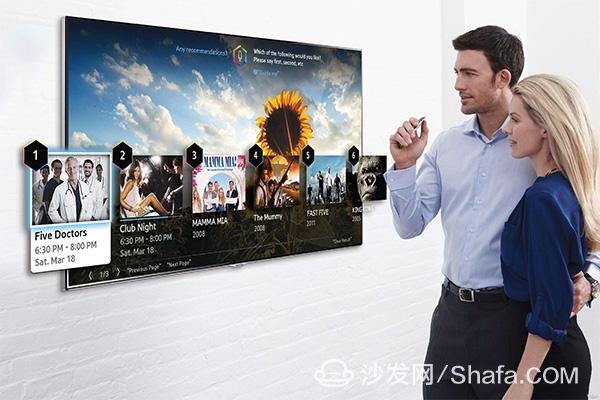The smart home promoters are also home appliance brands that we are familiar with. They continue to repeat the idea that intelligence will make life easier and smart homes will improve the quality of life. However, along with such original intentions, it is more and more complicated functions and tedious operations. It is such a phenomenon that intelligent homes represented by smart TVs are now being dubbed another concept - pseudo intelligence.

Smart TV: A Model of Life Complexity
When it comes to the experience that smart TV brings to people, many people may think of "inhuman" experiences such as content monitoring, copyright, and fees. In fact, the human-computer interaction of smart TV itself is not done well. The term pseudo-intelligence describes their reasons. Smart TVs allow many optional elements to be squeezed onto a single screen. Users can only accomplish many complex operations with a simple remote control. I believe many people have experienced this kind of crashing feeling and have experienced it for several years. Development still has no improvement. Smart TVs are still the case, and smart homes look even more distant.
From 2017, it seems that ushered in the moment of breaking the deadlock. Smart voice is fully integrated into the TV, and it becomes standard on almost every TV, as if we can put down the remote control and let the TV know what it should do. At an industry conference sponsored by the China Electronics and Video Industry Association, an authoritative research report showed that the penetration rate of smart TVs in households was as high as 85%. This data shows that smart TVs have completely replaced traditional TVs. However, in use, smart TVs are faced with a situation of “internal heat and coldâ€. TV practitioners are very enthusiastic about smart TVs, and market acceptance is not high. It can even be said that this penetration rate is the result of forcibly controlling the proportion of shipments. Does not mean that the user agrees with the product. Smart TVs get together to provide intelligent voice interaction in this situation, with deeper meaning behind them.

What is the core of television intelligence? Smart TV has a powerful processor and an open platform. It provides users with rich content through numerous third-party applications to meet the needs of complex users. The human-computer interaction interface is responsible for the docking between the user and the application, so that the operation becomes simple, efficient, and accurate. The core of the television intelligence is the accuracy. The interaction based on the remote control is neither simple nor efficient, and has become an important link influencing the user experience. Therefore, intelligent voice is not only a function, but also shoulders the mission of giving smart TVs a certain name. It is necessary to turn “pseudo-intelligence†into true intelligence in order to further activate the smart TV market.
Smart is significant and the road to intelligence is far away
Smart Voice shoulders the mission of improving the user experience. More and more smart TVs equipped with intelligent voice functions have ushered in a new question: Has it really changed? Many brands seem to have achieved success with a nominal speech recognition rate of 97% and 98%. Wang Chuan, head of Xiaomi TV, has his own opinion. In an interview with the media, he said, “We are trying to improve the accuracy of recognition through semantic understanding, but TV cannot yet accurately understand anything you say.†It is the most real situation in the entire industry. Today, it is only half a year before Wang Chuan said this.
In fact, Wang Chuan said that letting smart TV “accurately understand anything you say†is a huge challenge internationally. If you are faced with a 6-year-old child, can you accurately understand what you said? According to the Chinese Academy of Sciences' 2016 self-assessment model, the absolute IQ of a 6-year-old child is 55.5, while the artificial intelligence system has the highest score of 47.28 in artificial intelligence research. The scores of many similar technologies in China are even higher. Below 40, absolute IQ is nowhere near 6 years old. Counting on such technologies to improve the human-computer interaction experience of smart TVs and turning pseudo-intelligence into true intelligence, how successful is the probability?
The ideal is very full and the reality is very edgy. It is the status quo of smart TV development. The goal is ahead and the road is at the foot of it. It is also the status of smart TV development. As early as the “Twelfth Five-Year Plan†period, smart homes were included in the national nine key areas of application demonstration projects, which led to the rapid development of domestic voice recognition, voice interaction technology, a series of smart voice companies and technologies that we are familiar with, It was all developed at this time. Compared with Google, although the results are behind, but the development is faster, perhaps one day will replace the top Google.
Only when there is a goal, there is motivation. If there is hope, it will be realized.
In the current technology environment, describing the future of smart voice and smart TV is still a relatively distant matter, but we can see some hope from the development trend. Returning to today's smart TV market, the remote control is still rampant, "pseudo-intelligence" rampant, did not change at all. It is not the industry practitioners who do not work hard but they are limited by the existing technologies and efforts can only achieve such results. Smart TVs are still merely "pseudo intelligence," and the development of other smart homes is far behind television.
Let the family return to the simple nature, smart home really do it? The answer is not yet. From "pseudo-intelligence" to true intelligence, this road is very long, but we are on the way to true intelligence, with goals and hope. Only the rapid development of technology can make smart homes produce qualitative changes, in order to truly return home to simple nature. In the face of the current market with a wide range of smart home products, waiting, perhaps the most rational consumption concept.
Smart TV/box information can focus on smart TV information network sofa butler (http://), China's influential TV box and smart TV website, providing information, communication, TV boxes, smart TVs, smart TV software, etc. Answering questions.Suizhou simi intelligent technology development co., LTD , https://www.msmsmart.com
